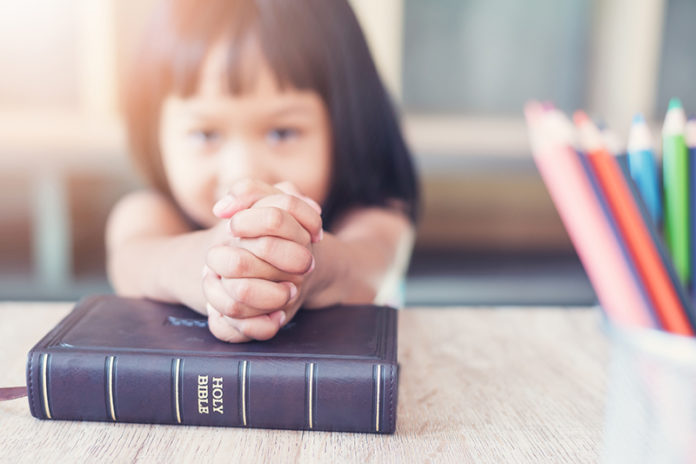The religious right will rejoice if the Supreme Court upbraids a public school district for parting ways with a football coach over his public postgame prayers. But the celebration could be short-lived.
Joseph Kennedy’s lawsuit against the Bremerton School District will likely expand government employee rights under the First Amendment’s free-exercise clause while eroding the establishment clause’s religious neutrality requirement. If that opens the door to employee-led extracurricular prayer, the outcome will cause more problems for evangelicals than it solves.
Kennedy coached junior varsity football for Bremerton High School in Washington state and served as an assistant varsity coach. A devout Christian, he ended each game with a brief prayer at the 50-yard line. Kennedy observed the ritual without controversy for seven years, but that changed in September 2015 when an opposing team’s coach expressed concerns to the principal.
Players often joined Kennedy in prayer, and Bremerton High feared the midfield huddles could seem school-sponsored. A letter from the district directed Kennedy to pray solo, noting that under the establishment clause, school prayers should be “entirely and genuinely student-initiated.”
After pausing his prayers for about a month, Kennedy lawyered up and told school officials he’d resume the custom. He believed the district’s directive violated his free exercise rights. The coach also publicized the issue and rallied his supporters, many of whom rushed the field to join Kennedy after an Oct. 16 game.
Another warning letter followed, and after two more prayer huddles, the Bremerton School District placed Kennedy on paid leave. Officials didn’t renew his contract for 2016, prompting the lawsuit that would ultimately bring the matter before the nation’s highest court.
A federal district judge and a 9th U.S. Circuit Court of Appeals panel ruled against Kennedy, finding the school’s desire to avoid endorsing his religious practice justified the decision to sever ties. The case pits Kennedy’s free speech and free exercise rights against the school’s obligation to prevent employees from showing religious favoritism.
During oral arguments on April 25, justices peppered the attorneys — former Solicitor General and elite D.C. law partner Paul Clement representing Kennedy and Americans United for Separation of Church and State lawyer Richard Katskee appearing for the school district — with hypotheticals designed to see how each would balance the conflicting rights at issue.
Finding a remedy that protects Kennedy’s prayers while avoiding any appearance of endorsement will be difficult. Students’ involvement was the sticking point. But the district can’t force Kennedy to shoo his players away, as that would violate their own free exercise rights.
The court grappled with whether on-field prayers could be coercive. Would players of different faiths or no faith feel obligated to join out of concern that participants could receive preferential treatment in the form of more playing time or a starting slot on the roster?
Contrary to popular belief on the right, God was never “kicked out” of public school.
Student religious clubs, Bible studies and “See You At the Pole” prayers thrive under existing First Amendment jurisprudence.
The difference between these groups and Kennedy’s huddles? Students are empowered to take ownership of their faith in the former case. In the latter, they passively pray along.
Under current precedent, both students and school employees can practice their religion.
Students are free to evangelize. But teachers, coaches and other officials can’t proselytize or give religious instruction while they’re representing a public school — an arm of government that must remain neutral on spiritual matters.
That compromise is prudent, and the six-justice conservative majority should avoid allowing sympathy for Kennedy’s sincere religious beliefs to muddy the waters.
Christians might applaud a decisive victory for the coach, but those cheers will turn to jeers when school employees who are Jewish, Muslim or Wiccan decide to hold their own group prayers. Remember, government can’t play favorites. Any religious accommodation made for one faith must be available for all others.
Amid conservative backlash over lessons on gender and race that parents say should be taught in the home, it’s perplexing that evangelicals are content to entrust government employees with their children’s mortal souls.
If justices rule in Kennedy’s favor, a narrow procedural decision that avoids weakening the establishment clause would benefit the faithful and faithless alike.





























